
Cairo: The Timeless City of Pharaohs and Pyramids
Cairo, the capital of Egypt, is a city where ancient history and modern life blend seamlessly. Known for its iconic pyramids and the Sphinx, Cairo offers a journey back in time. The Egyptian Museum houses a vast collection of relics, including treasures from the tomb of Tutankhamun. The city's bustling bazaars, such as Khan El Khalili, provide a unique shopping experience with their array of spices, textiles, and handcrafted goods. Beyond its historical landmarks, Cairo is a vibrant metropolis. Take a leisurely cruise along the Nile River and enjoy the stunning views of the city's skyline. The Al-Azhar Park, with its beautiful gardens and fountains, offers a peaceful retreat from the city's hustle and bustle. Don't miss the historic Islamic Cairo district, home to many mosques and architectural wonders. Cairo's culinary scene is also a highlight for visitors. Indulge in traditional Egyptian dishes such as koshari, ful medames, and fresh falafel. The city's lively cafes and restaurants provide the perfect setting to savor these flavors. Whether you're exploring ancient sites or enjoying modern amenities, Cairo promises an unforgettable adventure.
Local tips in Cairo
- Visit the pyramids early in the morning to avoid the crowds and the midday heat.
- Dress modestly, especially when visiting religious sites.
- Carry small change for tips, known as 'baksheesh,' which are customary for various services.
- Bargain when shopping at bazaars for the best prices, but always do so politely.
- Use bottled water for drinking and brushing your teeth to avoid stomach issues.
Neighbourhoods in Cairo
Cairo: The Timeless City of Pharaohs and Pyramids
Cairo, the capital of Egypt, is a city where ancient history and modern life blend seamlessly. Known for its iconic pyramids and the Sphinx, Cairo offers a journey back in time. The Egyptian Museum houses a vast collection of relics, including treasures from the tomb of Tutankhamun. The city's bustling bazaars, such as Khan El Khalili, provide a unique shopping experience with their array of spices, textiles, and handcrafted goods. Beyond its historical landmarks, Cairo is a vibrant metropolis. Take a leisurely cruise along the Nile River and enjoy the stunning views of the city's skyline. The Al-Azhar Park, with its beautiful gardens and fountains, offers a peaceful retreat from the city's hustle and bustle. Don't miss the historic Islamic Cairo district, home to many mosques and architectural wonders. Cairo's culinary scene is also a highlight for visitors. Indulge in traditional Egyptian dishes such as koshari, ful medames, and fresh falafel. The city's lively cafes and restaurants provide the perfect setting to savor these flavors. Whether you're exploring ancient sites or enjoying modern amenities, Cairo promises an unforgettable adventure.
When is the best time to go to Cairo?
Iconic landmarks you can’t miss
Khan el-Khalili
Explore Cairo's historic Khan el-Khalili bazaar: a vibrant marketplace with unique souvenirs, spices, and traditional Egyptian crafts since 1382.
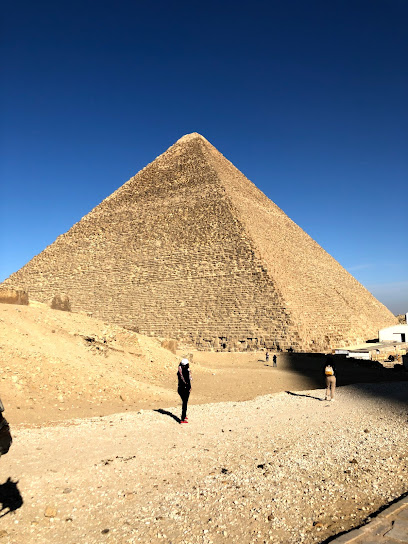
The Egyptian Museum in Cairo
Explore over 120,000 ancient Egyptian artifacts in the heart of Cairo, from royal mummies to Tutankhamun's treasures, at the iconic Egyptian Museum.
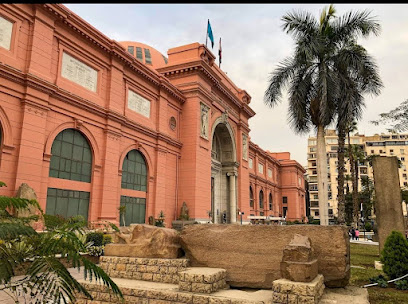
قلعة صلاح الدين الأيوبي
Explore the historic Saladin Citadel in Cairo, a medieval fortress with mosques, museums, and panoramic city views from the Mokattam Hills.
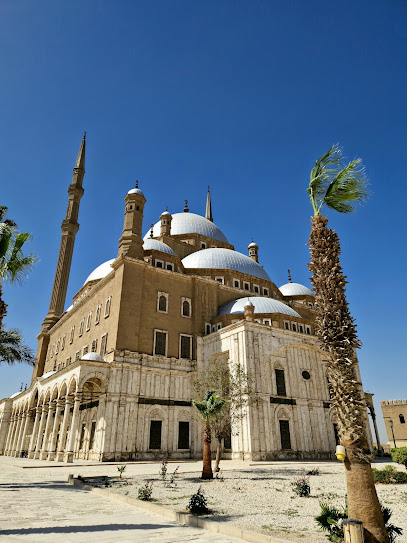
Cairo Tower
Experience Cairo from above at this iconic tower, offering 360-degree views and a unique glimpse into Egypt's modern capital.

Abdeen Palace Museum
Explore the opulent Abdeen Palace Museum in Cairo, a window into Egypt's royal history and stunning architecture.
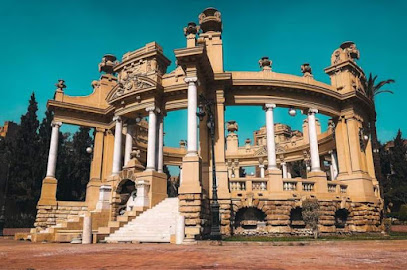
Amr ibn Al-A'as Masjid Jama
Visit the Amr ibn Al-A'as Mosque, the first mosque in Egypt and Africa, a landmark of Islamic history and architecture in Old Cairo.
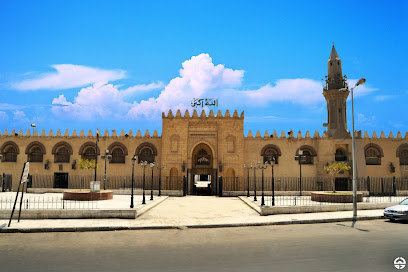
Al-Hakim Mosque
Explore the majestic Al-Hakim Mosque in Cairo, a historical and architectural gem reflecting the grandeur of the Fatimid dynasty.
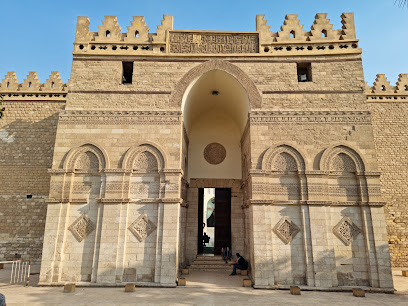
Prince Mohamed Ali Palace (Al Manial Palace)
Discover the opulent world of Egyptian royalty at the Prince Mohamed Ali Palace, a unique blend of Islamic art and European elegance.
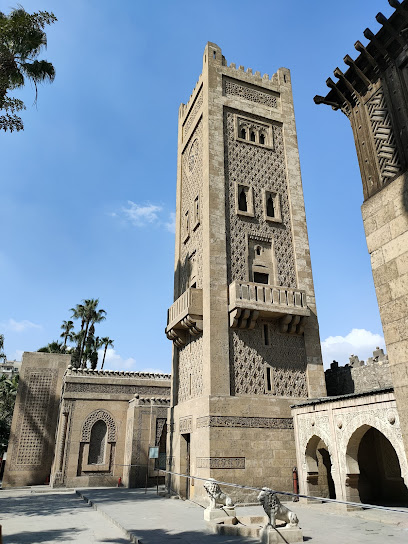
Bab al-Futuh
Explore Bab al-Futuh, a majestic Fatimid-era gate in Cairo, showcasing Islamic military architecture and a glimpse into the city's rich history.
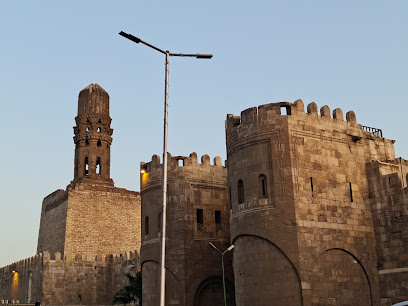
The Hanging Church
Explore the rich history and stunning architecture of The Hanging Church, a pivotal site of Coptic heritage in the heart of Old Cairo.
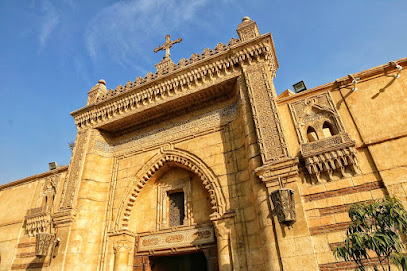
Museum of Islamic Art in Cairo
Explore a vast collection of Islamic art & artifacts at Cairo's Museum of Islamic Art, showcasing centuries of cultural heritage and artistic brilliance.
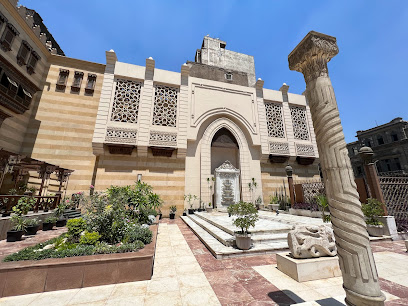
Habib Pasha El-Sakakini Palace
Discover Cairo's hidden gem: The Sakakini Palace, a stunning example of Rococo architecture with a rich history and intricate design.
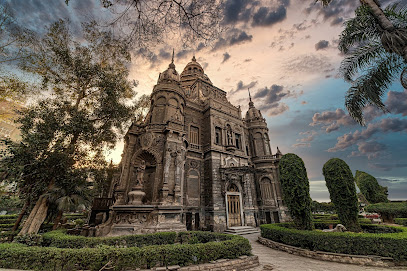
Ibn Tulun Mosque
Explore Cairo's oldest mosque, a masterpiece of Islamic architecture with a unique spiral minaret and serene atmosphere.
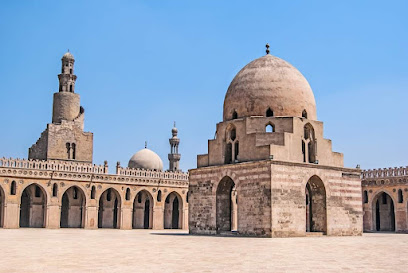
Qasr Al-Nil Statues
Iconic bronze lions guarding Cairo's Qasr Al-Nil Bridge, connecting history and culture on the Nile since 1933. A symbol of strength and resilience.
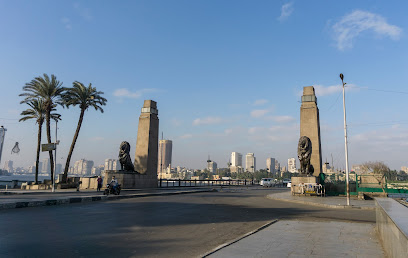
Bab Zuweila
Explore Bab Zuweila, one of Cairo's last remaining medieval gates, offering panoramic views and a glimpse into the city's rich history.
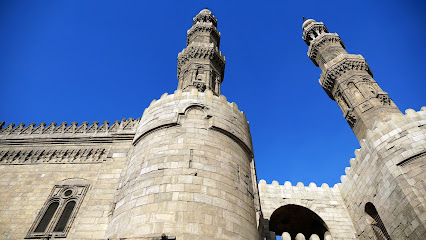
Unmissable attractions to see
Giza Necropolis
Explore the Giza Necropolis, home to the Great Pyramids and Sphinx, a remarkable testament to ancient Egyptian civilization and its timeless wonders.
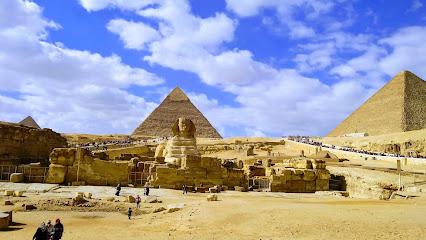
The Egyptian Museum in Cairo
Explore the wonders of ancient Egypt at The Egyptian Museum in Cairo, home to Tutankhamun's treasures and countless historical artifacts.
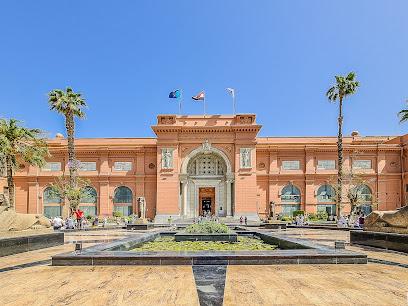
Al-Azhar Park
Experience the beauty of Al-Azhar Park, a serene escape in Cairo with stunning gardens, breathtaking views, and rich cultural heritage.
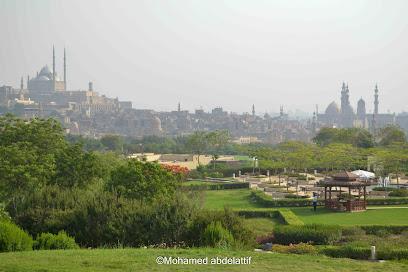
Giza Zoo
Discover the rich fauna and serene landscapes at Giza Zoo, a historic gem in Al Giza, where wildlife conservation meets family-friendly fun.
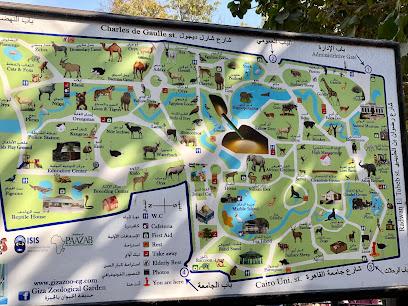
Cairo Citadel
Discover the grandeur of Cairo Citadel, a historic fortress offering breathtaking views and a deep dive into Egypt's rich heritage.
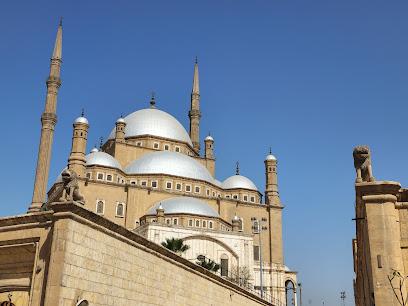
The National Museum of Egyptian Civilization
Explore the National Museum of Egyptian Civilization in Old Cairo, where ancient artifacts and rich history come together to narrate Egypt’s fascinating past.
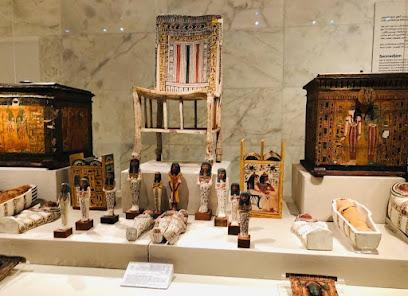
Cairo Tower
Discover breathtaking panoramic views of Cairo and the iconic Nile River from the heights of Cairo Tower, a symbol of Egypt's rich history and modern culture.
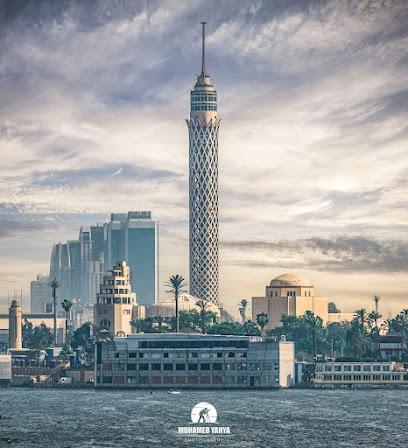
Al-Azhar Mosque
Explore the Al-Azhar Mosque, a breathtaking historical landmark in Cairo, showcasing exquisite Islamic architecture and rich cultural heritage.
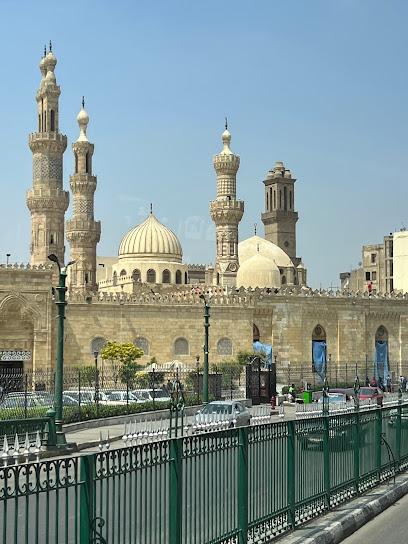
Pharaonic Village
Experience the magic of Ancient Egypt at Pharaonic Village, where history, culture, and fun merge in an unforgettable journey.
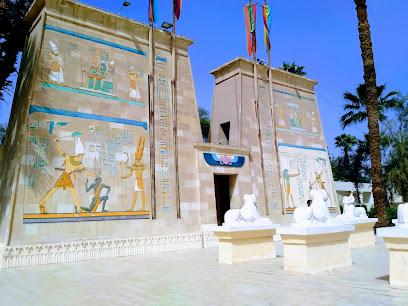
Ski Egypt
Experience the thrill of skiing in the heart of Egypt at Ski Egypt, the premier indoor ski resort that brings winter sports to the desert.
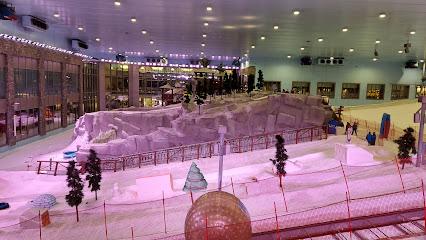
Abdeen Palace Museum
Discover the stunning Abdeen Palace Museum, a historical treasure in Cairo showcasing Egypt's royal heritage and rich cultural history.
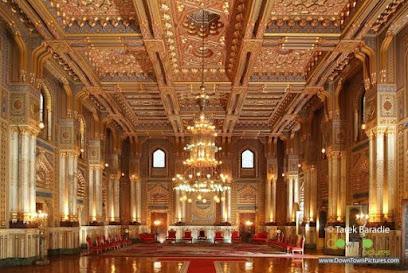
Al-Hakim Mosque
Explore the stunning Al-Hakim Mosque in Cairo, a historical landmark showcasing intricate Islamic architecture and rich cultural heritage.
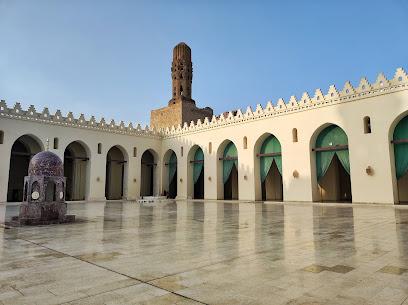
Mosque-Madrasa of Sultan Hassan
Explore the Mosque-Madrasa of Sultan Hassan, a stunning example of Mamluk architecture and a key historical site in the heart of Cairo.
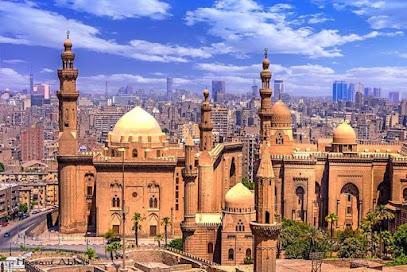
Bab al-Futuh
Explore Bab al-Futuh, an architectural marvel in Cairo, showcasing Islamic design and offering a glimpse into the city’s storied past.
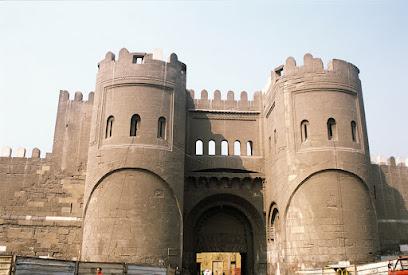
Panorama October
Explore Egypt's military history and stunning views at Panorama October, a must-visit war museum in Cairo.
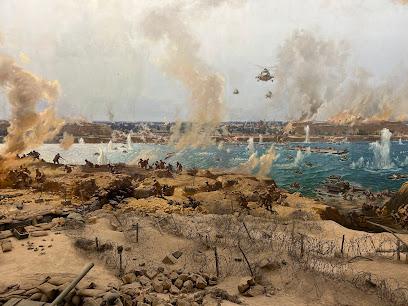
Essential places to dine
Oldish ( Restaurant & Cafe )
Discover Oldish Restaurant & Cafe: where authentic Egyptian flavors meet modern culinary creativity in the heart of Cairo.
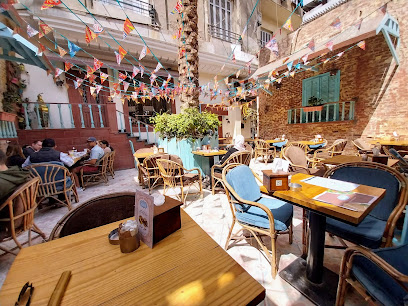
Zööba
Experience authentic Egyptian street food at Zööba in Zamalek—where tradition meets modernity in every delicious bite.
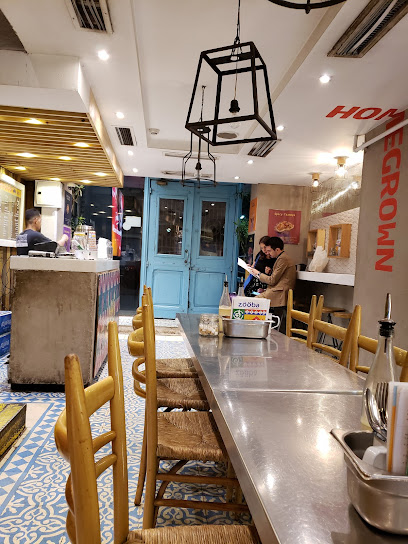
Abou El Sid Restaurant
Experience authentic Egyptian cuisine and innovative izakaya dishes at Abou El Sid Restaurant in Zamalek, Cairo.
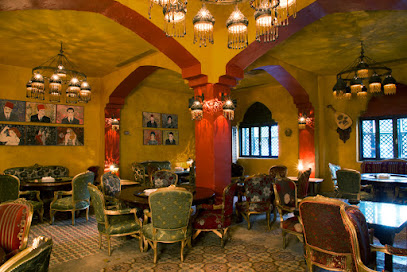
CaiRoma
Experience authentic Italian cuisine at CaiRoma in Cairo - where delicious flavors meet warm hospitality.
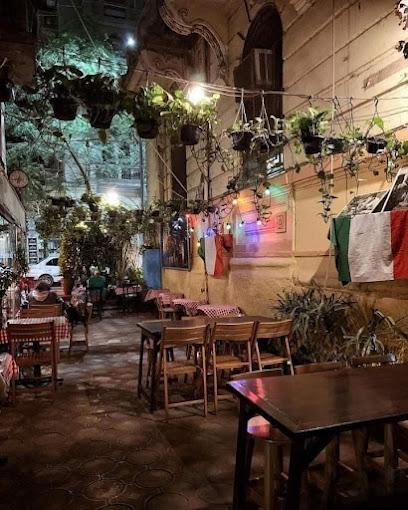
Taboula
Discover the authentic taste of Lebanon at Taboula – where every dish tells a story of tradition and flavor in Cairo.
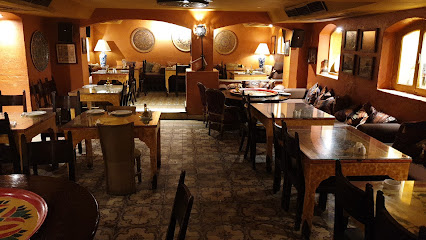
Pier 88 Nile River
Discover Pier 88 Nile River - where exquisite Italian cuisine meets breathtaking views on the banks of Cairo's iconic river.
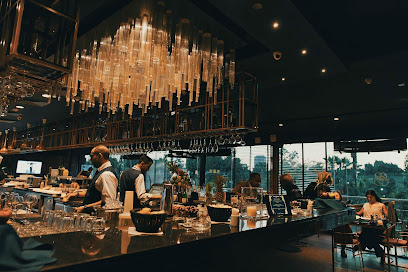
Zitouni
Experience exquisite Egyptian cuisine at Zitouni, where tradition meets luxury along the scenic Nile Corniche.
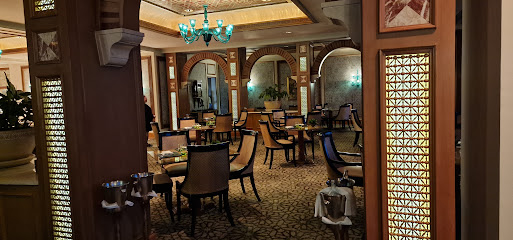
Osmanly Restaurant
Experience authentic Turkish cuisine at Osmanly Restaurant in Cairo – where every dish tells a story.
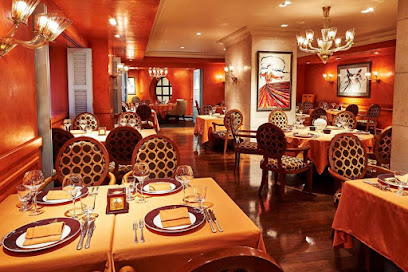
The Grill
Experience exquisite French cuisine at The Grill in Cairo; where fine dining meets breathtaking views of the Nile.
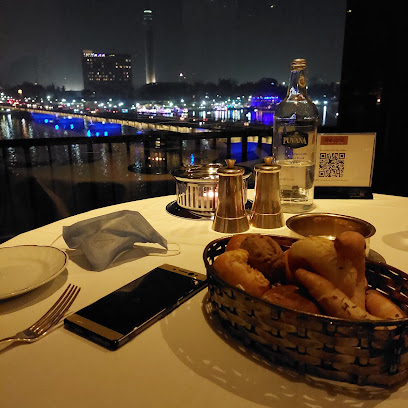
LE Grillon Restaurant & Garden Cafe
Experience exquisite fine dining at LE Grillon Restaurant & Garden Cafe in Cairo, where culinary art meets enchanting garden ambiance.
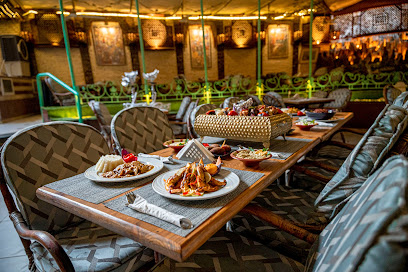
Pane Vino
Experience authentic Italian cuisine at Pane Vino in Cairo with stunning Nile views and exceptional service.
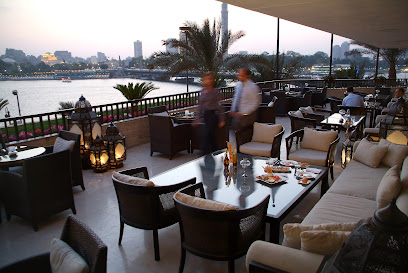
SAIGON RESTAURANT & LOUNGE
Experience authentic Vietnamese cuisine at Saigon Restaurant & Lounge in Cairo with stunning Nile views and an elegant atmosphere.
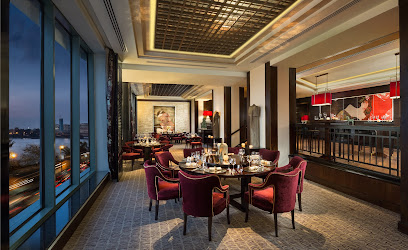
Adeemo
Discover Adeemo: A culinary oasis in Zamalek offering exquisite local and international dishes amidst an inviting atmosphere.
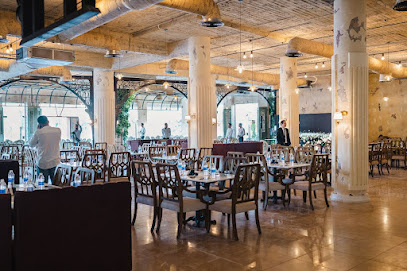
Cairo Kitchen zamalek
Experience authentic Egyptian flavors at Cairo Kitchen Zamalek - where tradition meets taste in every dish.
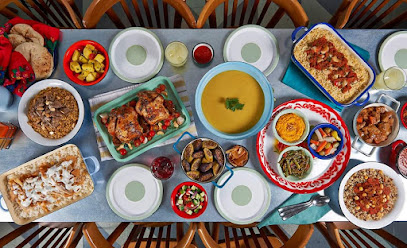
Birdcage
Savor authentic Thai cuisine at Birdcage in Cairo's Semiramis InterContinental Hotel, where tradition meets luxury amidst stunning Nile views.
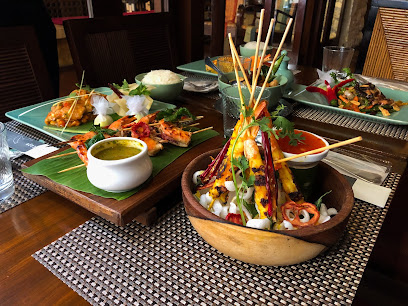
Markets, malls and hidden boutiques
The First Mall
Discover luxury shopping and dining at The First Mall, nestled inside the Four Seasons Hotel in Al Giza, a modern oasis near Egypt's ancient treasures.
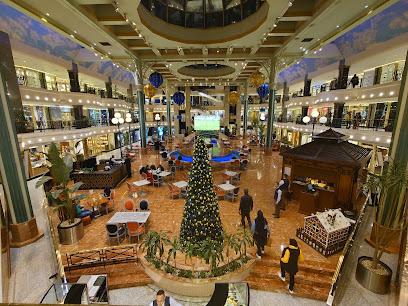
Underground Store
Explore the vibrant Underground Store in Cairo, where unique fashion meets local culture, offering a shopping experience like no other.
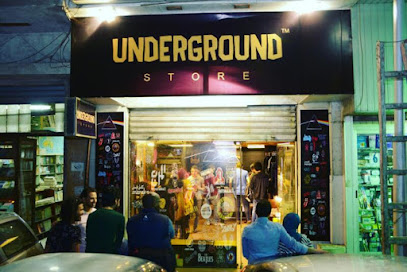
Gift Shop Bazaar
Explore the vibrant Gift Shop Bazaar in Cairo for unique Egyptian souvenirs and handicrafts that capture the spirit of your travels.
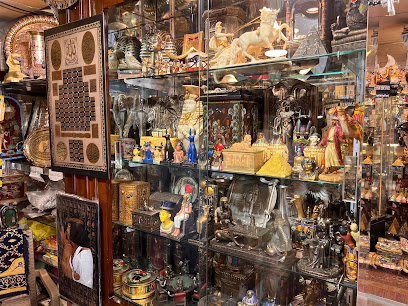
Jordi bazar shop
Explore Jordi Bazar Shop in Cairo for unique souvenirs that celebrate Egyptian culture, perfect for every traveler seeking a memorable keepsake.
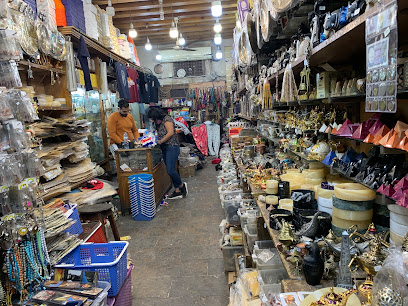
ذا قاف - The Qaaf
Explore a vibrant gift shop and clothing store in Cairo, offering unique souvenirs and local treasures to commemorate your visit.

Fair Trade Egypt
Discover authentic Egyptian handicrafts at Fair Trade Egypt, a unique gift shop promoting local artisans and fair trade practices.
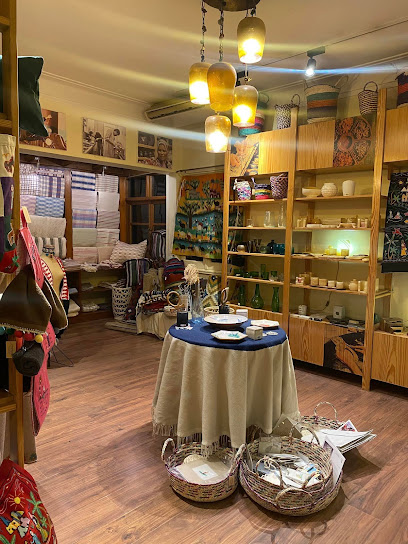
Oum el Dounia Gallery - ام الدنيا جاليري
Explore Oum el Dounia Gallery in Cairo for unique handicrafts, books, and local souvenirs that embody the spirit of Egyptian culture.
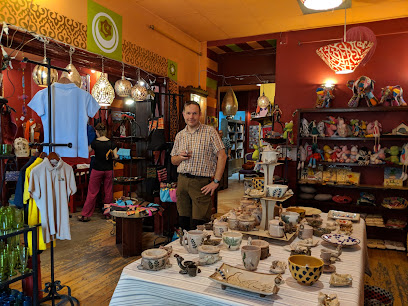
Khan Al Khalili Center
Explore the rich history and vibrant culture of Cairo at Khan Al Khalili Center, a must-visit shopping destination filled with local crafts and delicious cuisine.
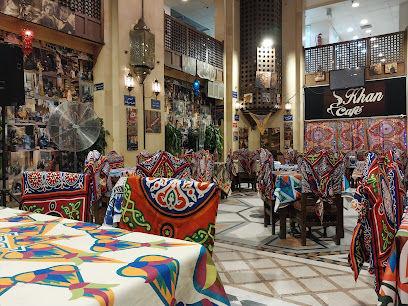
Nomad Gallery - Zamalek Main Branch
Explore the artistic charm of Nomad Gallery in Zamalek, offering unique jewelry, antiques, and handcrafted treasures that celebrate Egyptian culture.
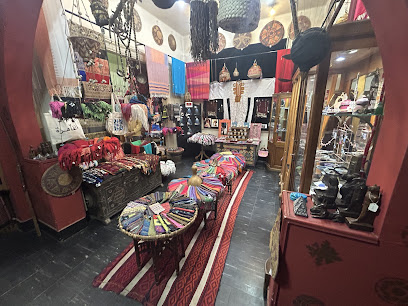
Ateeq Design - عتيق
Explore the vibrant world of Egyptian handicrafts at Ateeq Design, Zamalek's premier souvenir store featuring unique, handmade treasures.
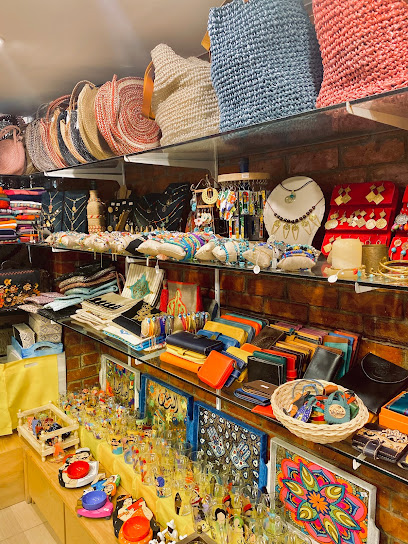
Jozee Boutique Zamalek
Discover the essence of Cairo's fashion scene at Jozee Boutique Zamalek, where style meets local craftsmanship in a chic shopping experience.
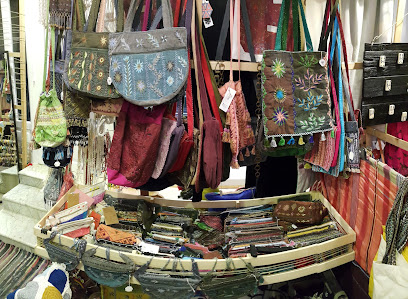
Kenoz
Explore Kenoz in Cairo for a unique selection of antique furniture and collectibles that reflect Egypt's rich cultural heritage.

BOUTIQUE 51
Discover unique women's fashion at Boutique 51 in Zamalek, Cairo - a stylish haven for the modern woman.
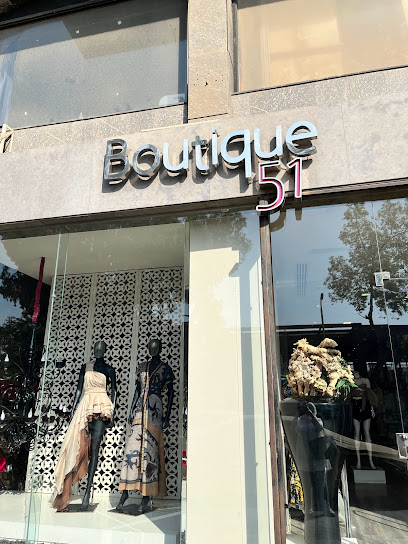
Altay
Explore Altay, Zamalek's charming gift shop, featuring unique handcrafted treasures and authentic Egyptian souvenirs for every traveler.
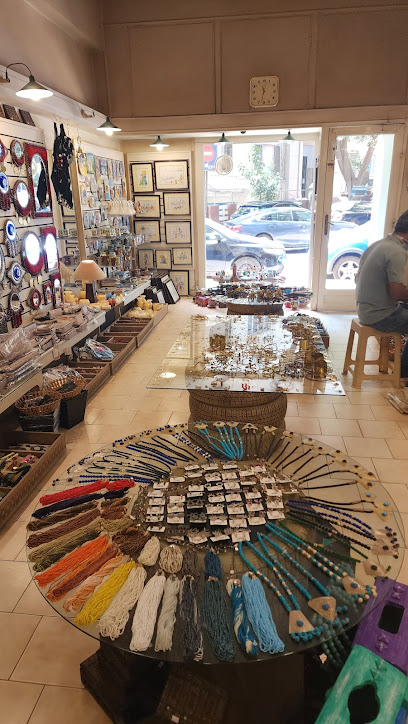
The Sahara Collection Store
Explore unique fashion at The Sahara Collection Store in Zamalek, Cairo - where quality meets creativity in clothing.
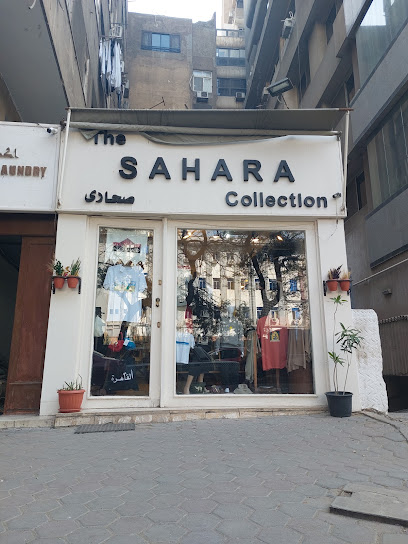
Essential bars & hidden hideouts
Crimson Bar & Grill, Cairo, Egypt.
Experience the vibrant flavors of Cairo at Crimson Bar & Grill, a luxurious dining spot in Zamalek with exquisite cuisine and a lively atmosphere.
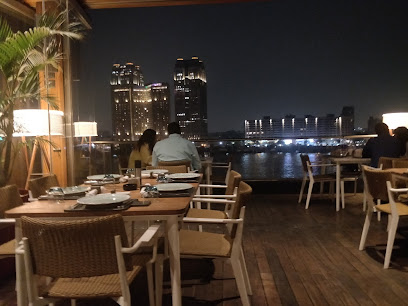
Pub 28
Discover the vibrant nightlife at Pub 28 in Zamalek, where good drinks and great company await in the heart of Cairo.
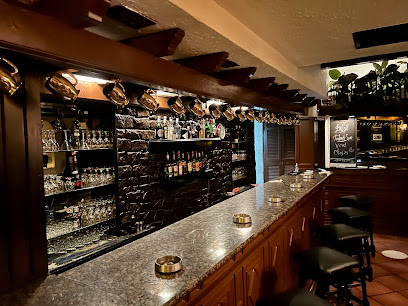
Cap D'or
Experience the vibrant nightlife of Cairo at Cap D'or, where local flavors and a lively atmosphere come together in the heart of Abdeen.
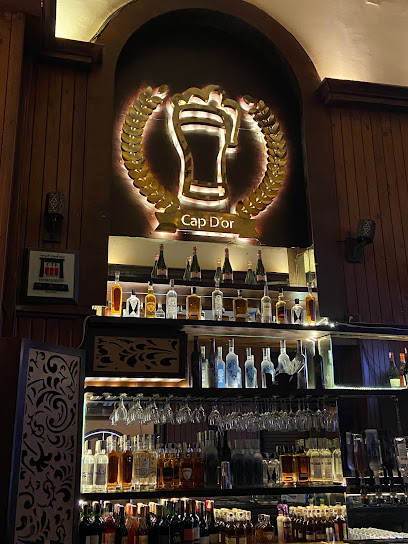
Carol Bar
Discover a culinary gem in Cairo at Carol Bar, where grilled delights and tapas create an unforgettable dining experience.
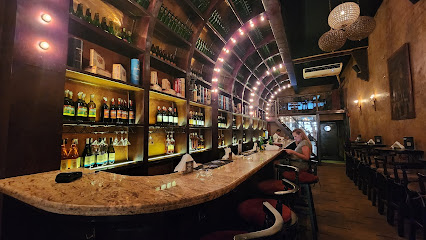
Stage One Lounge & Bar
Experience luxury with stunning Nile views at Stage One Lounge & Bar in Cairo, where cocktails and nightlife come together.
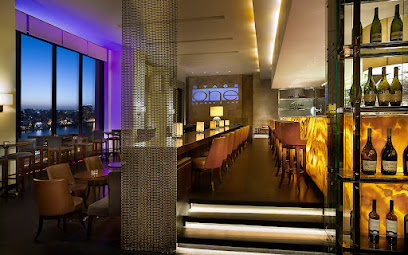
Odeon Palace Bar
Discover the vibrant atmosphere of Odeon Palace Bar in Cairo, where local flavors meet modern comfort for an unforgettable experience.
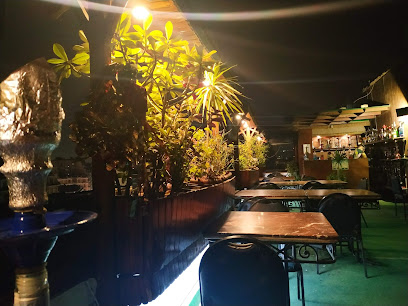
Gu Lounge
Discover the vibrant nightlife of Cairo at Gu Lounge, where fine dining meets energetic entertainment on the banks of the Nile.
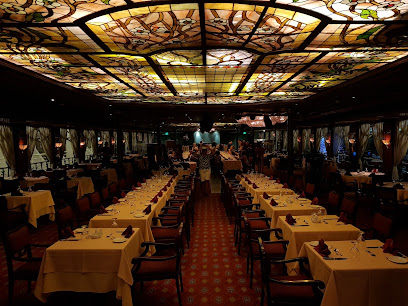
The Cairo Cellar
Experience the vibrant nightlife at The Cairo Cellar, a lively pub in Zamalek offering delicious food, great drinks, and unforgettable moments.
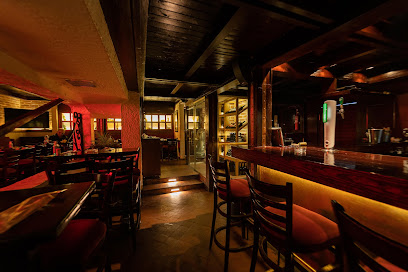
Stella Bar
Discover the vibrant atmosphere of Stella Bar, Cairo's go-to spot for affordable drinks and lively nightlife.
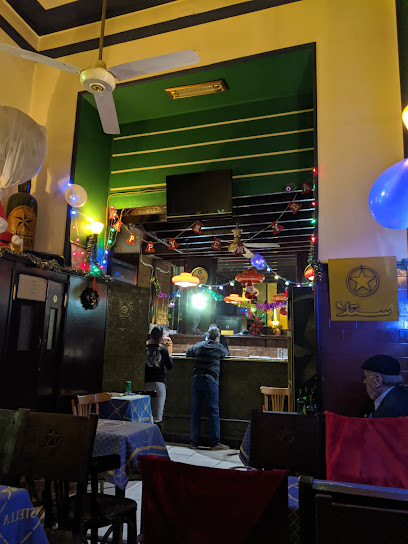
Jazz Bar
Discover the vibrant nightlife of Cairo at the Jazz Bar, where live jazz meets exquisite cocktails in an upscale atmosphere.
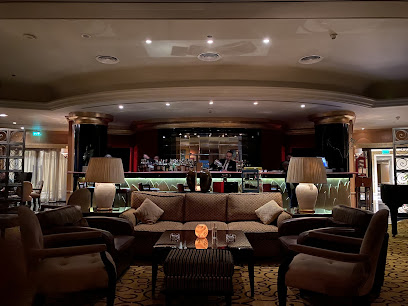
Upper Deck Lounge
Experience luxury dining at Upper Deck Lounge along the Nile, offering sushi, seafood, and stunning views in the heart of Cairo.
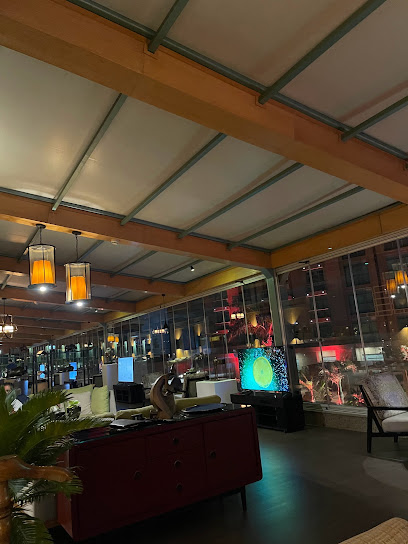
Kings Bar
Discover Kings Bar in Cairo for a lively atmosphere, delectable drinks, and unforgettable nightlife experiences in the heart of Egypt.
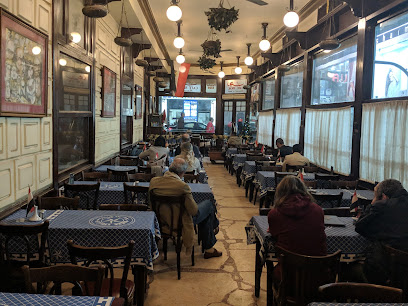
Le Comte Downtown Bar
Discover Cairo's lively nightlife at Le Comte Downtown Bar, where vibrant ambiance meets exquisite drinks in the heart of Al Fawalah.
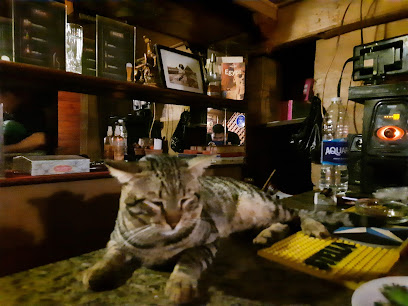
Carmen Pub Bar
Experience the vibrant nightlife of Cairo at Carmen Pub Bar, where lively ambiance meets a diverse drink selection in Zamalek.
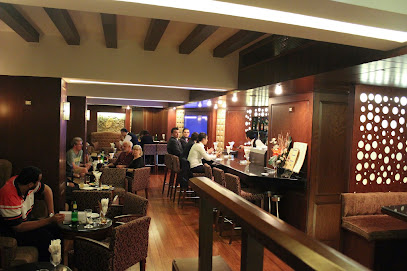
Local Phrases
-
- Helloمرحبا
[marhaba] - Goodbyeوداعا
[wada'an] - Yesنعم
[na'am] - Noلا
[la] - Please/You're welcomeمن فضلك
[min fadlak] - Thank youشكرا
[shukran] - Excuse me/Sorryعذرا
[a'ithir] - How are you?أزيك؟
[ezayyak?] - Fine. And you?تمام. وأنت؟
[tamam. w-ant?] - Do you speak English?بتتكلم إنجليزي؟
[betetkalem ingilizi?] - I don't understandمش فاهم
[mish fahem]
- Helloمرحبا
-
- I'd like to see the menu, pleaseعايز أشوف القائمة، من فضلك
[ayiz ashuf elqa'ima, min fadlak] - I don't eat meatأنا مش بآكل لحم
[ana mish ba'akol lahme] - Cheers!في صحتك!
[fi sahtak!] - I would like to pay, pleaseعايز أدفع، من فضلك
[ayiz adfa', min fadlak]
- I'd like to see the menu, pleaseعايز أشوف القائمة، من فضلك
-
- Help!النجدة!
[elnajda!] - Go away!امشي!
[imshi!] - Call the Police!اتصل بالشرطة!
[etssel baleshorta!] - Call a doctor!اتصل بالطبيب!
[etssel balta'ib!] - I'm lostانا ضايع
[ana daye'] - I'm illانا مريض
[ana mareed]
- Help!النجدة!
-
- I'd like to buy...عايز أشتري...
[ayiz ashtari...] - I'm just lookingأنا بس بتفرج
[ana bas batefarrag] - How much is it?بكام؟
[bikam?] - That's too expensiveده غالي أوي
[da ghali awe] - Can you lower the price?تقدر تنزل السعر؟
[takdar tenzel elsa'r?]
- I'd like to buy...عايز أشتري...
-
- What time is it?كام الساعة؟
[kam elsa'a?] - It's one o'clockالساعة واحدة
[elsa'a wahda] - Half past (10)العاشر ونص
[ela'ashar wanas] - Morningصباح الخير
[sabah alkheir] - Afternoonمساء الخير
[masa' alkheir] - Eveningمساء الخير
[masa' alkheir] - Yesterdayالأمس
[al'ams] - Todayاليوم
[alyoum] - Tomorrowغدا
[ghadan] - 1واحد
[wahed] - 2اتنين
[itneen] - 3تلاتة
[talata] - 4أربعة
[arba'a] - 5خمسة
[khamsa] - 6ستة
[sitta] - 7سبعة
[saba'a] - 8تمانية
[tamaneya] - 9تسعة
[tesa'a] - 10عشرة
[ashra]
- What time is it?كام الساعة؟
-
- Where's a/the...?فين ...؟
[fein ...?] - What's the address?ايه العنوان؟
[eh el'anwan?] - Can you show me (on the map)?تقدر توريني؟
[takdar tureen?] - When's the next (bus)?الباص الجاي امتى؟
[elbas elgay emta?] - A ticket (to ....)تذكرة (لـ ...)
[tazkara (li ...)]
- Where's a/the...?فين ...؟
History of Cairo
-
Cairo, known as Al-Qahirah in Arabic, was founded in 969 CE by the Fatimid dynasty. The city was established as the capital of the Fatimid Caliphate, marking the beginning of its rich historical journey. Before Cairo's establishment, the area was inhabited by older settlements, including the ancient city of Memphis and the Roman fortress of Babylon-in-Egypt.
-
During the Fatimid era, Cairo grew rapidly in size and influence. The Fatimids built many significant structures, including the Al-Azhar Mosque, which later became one of the oldest universities in the world. The city served as a center for Islamic learning and culture, attracting scholars from across the Muslim world.
-
In the late 12th century, Cairo came under the control of the Ayyubid dynasty, founded by Saladin. The Ayyubids were succeeded by the Mamluks in the mid-13th century, who ruled until the early 16th century. During this period, Cairo became a major center for trade, culture, and architecture. Iconic structures such as the Citadel of Cairo and numerous mosques and madrasas were built.
-
Cairo was conquered by the Ottoman Empire in 1517, marking the beginning of a new chapter in its history. The city remained an important provincial capital within the empire. Although the Ottomans ruled from Istanbul, Cairo retained a significant degree of autonomy and continued to thrive as a cultural and economic hub.
-
In 1798, Napoleon Bonaparte's forces briefly occupied Cairo, bringing with them European influences and sparking a period of modernization. Although the French left in 1801, their impact paved the way for future reforms. Muhammad Ali Pasha, an Ottoman governor, initiated significant modernization efforts in the early 19th century, transforming Cairo's infrastructure, military, and education system.
-
In 1882, the British occupied Egypt, including Cairo, ostensibly to protect their interests in the Suez Canal. British rule brought further modernization but also led to increased nationalistic sentiments among Egyptians. Cairo became a focal point for political activity, culminating in the 1919 revolution against British rule.
-
Cairo continued to grow throughout the 20th century, becoming a symbol of Arab nationalism under leaders such as Gamal Abdel Nasser. The city expanded rapidly, grappling with challenges such as overpopulation, traffic congestion, and pollution. Despite these issues, Cairo remains a vibrant metropolis, rich with historical sites, cultural landmarks, and bustling markets.
Cairo Essentials
-
Cairo is served by Cairo International Airport (CAI), which is the primary gateway for international travelers. The airport is located approximately 22 kilometers northeast of the city center. Most major airlines operate flights to Cairo from various global destinations. From the airport, you can reach the city center by taxi, which is the most common and convenient option. Alternatively, airport shuttle services and private car hires are also available.
-
Cairo has a comprehensive transportation network. The Cairo Metro is a fast and affordable way to navigate the city, with three lines covering major areas. Taxis are widely available, but it is advisable to use reputable companies or ride-hailing apps like Uber and Careem. For short distances, tuk-tuks and minibuses are common, though they can be crowded. Renting a car is an option, but driving in Cairo's heavy traffic can be challenging for newcomers. Buses are also available, but they can be confusing and less reliable for tourists.
-
The official currency in Egypt is the Egyptian Pound (EGP). Credit and debit cards are widely accepted in hotels, restaurants, and larger stores. However, it's advisable to carry cash for smaller vendors and markets. ATMs are readily available throughout Cairo. It's wise to exchange some currency at the airport or local banks for immediate expenses upon arrival.
-
Cairo is generally safe for tourists, but like any large city, it has areas where caution is advised. Petty crimes such as pickpocketing can occur in crowded places like markets and tourist attractions. Avoid isolated areas, especially at night. Areas like Downtown Cairo and Garden City are generally safe, while neighborhoods like Imbaba and Ain Shams have higher crime rates. Always be aware of your surroundings and keep your belongings secure.
-
In case of an emergency, dial 122 for police assistance, 123 for medical emergencies, and 180 for fire services. Most hospitals in Cairo have emergency departments, and there are numerous pharmacies for minor health issues. It is recommended to have travel insurance that covers medical emergencies. For consular assistance, contact your respective embassy or consulate in Cairo.
-
Fashion: Do dress modestly, especially when visiting religious sites. Avoid wearing revealing clothing. Religion: Do show respect for local customs and traditions. Always remove your shoes and cover your head when entering mosques. Public Transport: Do be patient and respectful. Public transport can be crowded. Don't eat or drink on the metro. Greetings: Do greet people with a handshake or a polite nod. Eating & Drinking: Do try local foods and accept hospitality graciously. Don't drink tap water; always opt for bottled water.
-
To experience Cairo like a local, visit the bustling Khan El Khalili bazaar for authentic shopping and local crafts. Enjoy a traditional Egyptian breakfast of foul and taameya at a local cafe. Take a felucca ride on the Nile for a relaxing evening. Engage with locals who are often friendly and willing to share insights about their city. Explore less touristy neighborhoods like Zamalek and Maadi for a more authentic experience.
Trending Landmark in Cairo
-
Khan el-Khalili
-
The Egyptian Museum in Cairo
-
قلعة صلاح الدين الأيوبي
-
Cairo Tower
-
Abdeen Palace Museum
-
Amr ibn Al-A'as Masjid Jama
-
Al-Hakim Mosque
-
Prince Mohamed Ali Palace (Al Manial Palace)
-
Bab al-Futuh
-
The Hanging Church
-
Museum of Islamic Art in Cairo
-
Habib Pasha El-Sakakini Palace
-
Ibn Tulun Mosque
-
Qasr Al-Nil Statues
-
Bab Zuweila
Nearby Cities to Cairo
-
Things To Do in Zagazig
-
Things To Do in Tanta
-
Things To Do in Beni Suef
-
Things To Do in Ismailia
-
Things To Do in Suez
-
Things To Do in Damietta
-
Things To Do in Port Said
-
Things To Do in Alexandria
-
Things To Do in Minya
-
Things To Do in Asyut
-
Things To Do in Dahab
-
Things To Do in Eilat
-
Things To Do in Beersheba
-
Things To Do in Aqaba
-
Things To Do in El Gouna



















